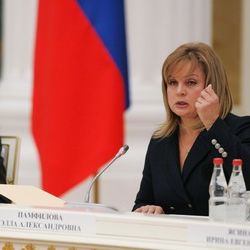This time, one of the main topics discussed at the meeting was state support for non-commercial organizations. In his address to parliament on November 12, Medvedev promised to introduce the institution of “non-profit organizations with a social focus.”
At the meeting, he said he had submitted to the State Duma a draft law that allows such organizations to receive support from the state, “including in the form of duty and tax breaks, preferences for state and municipal procurement.”
“We will continue our efforts in this area and will further support the non-commercial philanthropic organizations that help in solving various problems, including social problems,” Medvedev said.
Yaroslav Kuzminov, rector of the Higher School of Economics, said that the work on amendments to the legislation on non-commercial organizations may be finished by summer 2010.
Discussions also focused on implementing the National Anti-Corruption Plan and needed changes to the country’s political and legal systems.
Ella Pamfilova, the Chairwoman of the Presidential Council on Civil Society Institutions and Human Rights, said the police system should be modernized. In this regard, she mentioned the cases of Police Major Aleksey Dymovsky who posted videos on Internet against his bosses and Sergey Magnitsky, a lawyer for Hermitage Capital Management investment fund, who died in prison before being put to trial because he had been allegedly denied proper medical care.
Pamfilova also said that the Council on Civil Society Institutions and Human Rights may contribute to the fight against corruption. However, the problem is, she added, “who and how will fulfill it.”
The president answered that “neither the United States, nor France” would help to fight corruption in the Russian Federation, and the problem should be only solved by “officials and representatives of civil society.”
“I think that the steps we have taken already at least send a serious signal that this is the direction in which our society should develop and the road for improving our political system,” Medvedev added.
The next time the Council on Civil Society Institutions and Human Rights will gather is in spring 2010 Pamfilova suggested it should be dedicated to the situation in the North Caucasus, where “human rights activists and public figures are killed.”
Pamfilova added that activists of civil society are forced to leave the North Caucasus “if they do not obey local officials.” Medvedev agreed to hold such a meeting with the participation of human rights activists working in the region.
Human rights activists hope that their second meeting with the president will bring results like the first one. Aleksandr Brod, director of the Moscow bureau on human rights and member of the Public Chamber said that “during the financial and economic crisis… human rights organizations are needed more than ever.”





